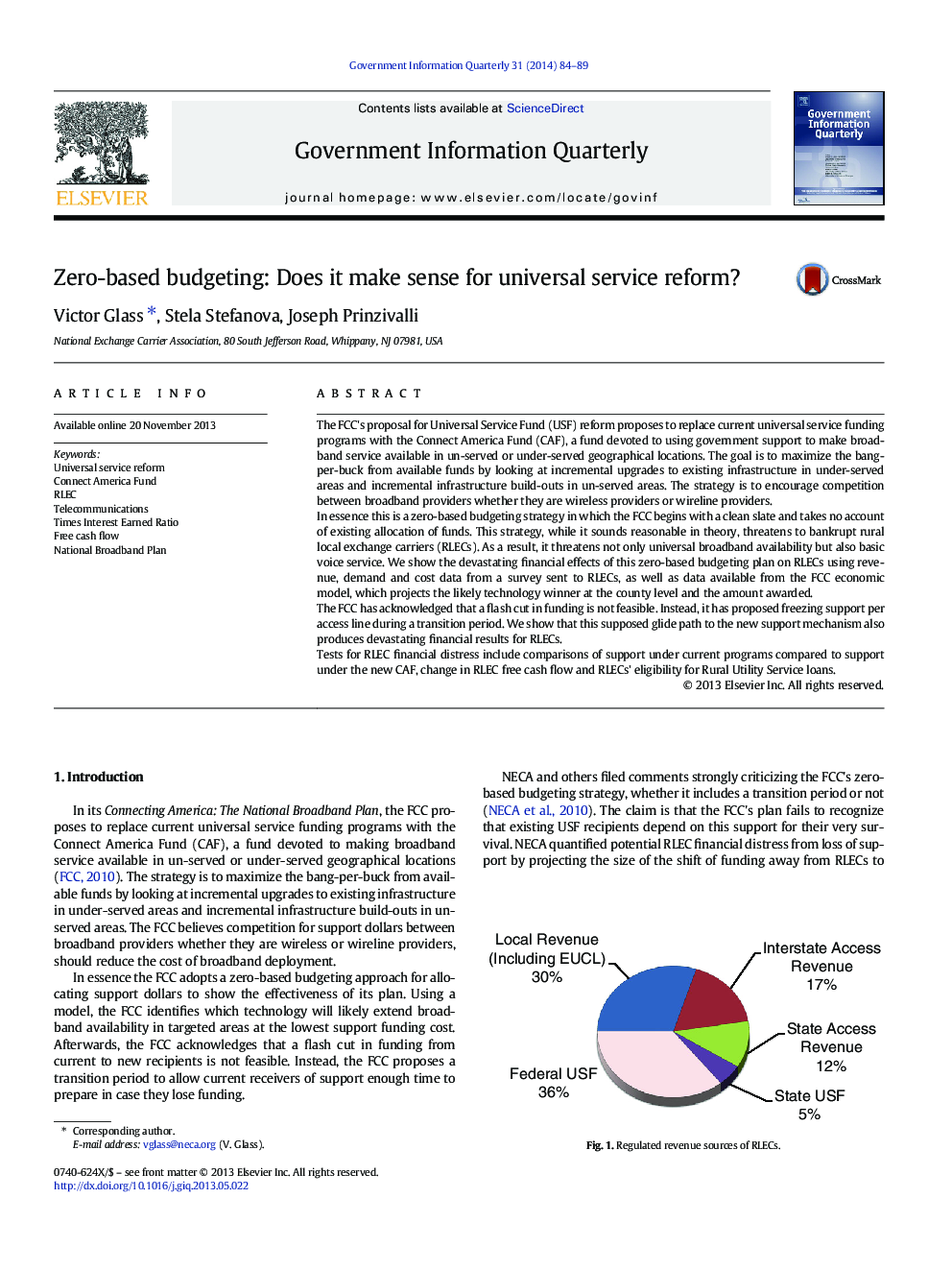| Article ID | Journal | Published Year | Pages | File Type |
|---|---|---|---|---|
| 1024455 | Government Information Quarterly | 2014 | 6 Pages |
The FCC's proposal for Universal Service Fund (USF) reform proposes to replace current universal service funding programs with the Connect America Fund (CAF), a fund devoted to using government support to make broadband service available in un-served or under-served geographical locations. The goal is to maximize the bang-per-buck from available funds by looking at incremental upgrades to existing infrastructure in under-served areas and incremental infrastructure build-outs in un-served areas. The strategy is to encourage competition between broadband providers whether they are wireless providers or wireline providers.In essence this is a zero-based budgeting strategy in which the FCC begins with a clean slate and takes no account of existing allocation of funds. This strategy, while it sounds reasonable in theory, threatens to bankrupt rural local exchange carriers (RLECs). As a result, it threatens not only universal broadband availability but also basic voice service. We show the devastating financial effects of this zero-based budgeting plan on RLECs using revenue, demand and cost data from a survey sent to RLECs, as well as data available from the FCC economic model, which projects the likely technology winner at the county level and the amount awarded.The FCC has acknowledged that a flash cut in funding is not feasible. Instead, it has proposed freezing support per access line during a transition period. We show that this supposed glide path to the new support mechanism also produces devastating financial results for RLECs.Tests for RLEC financial distress include comparisons of support under current programs compared to support under the new CAF, change in RLEC free cash flow and RLECs' eligibility for Rural Utility Service loans.
